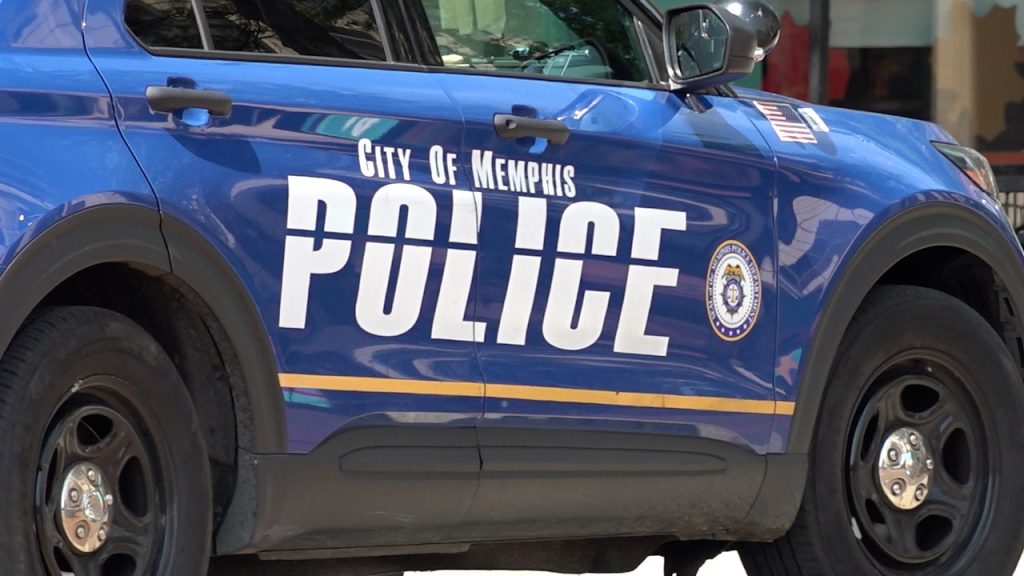Memphis Divided Over National Guard Deployment to Combat Crime
In a city grappling with one of the highest crime rates in the United States, President Donald Trump’s recent approval to deploy the National Guard in Memphis has sparked a range of reactions from local residents. On Monday, Trump signed a memorandum establishing the “Memphis Safe Task Force,” which includes not only the National Guard but also several federal agencies: the FBI, Bureau of Alcohol, Tobacco, Firearms and Explosives, Drug Enforcement Administration, Homeland Security Investigations, and Immigration and Customs Enforcement. Tennessee Governor Bill Lee has praised the initiative, suggesting it will build upon the success of “Operation Viper,” an ongoing FBI mission that has reportedly led to hundreds of arrests since July. “We’ve made significant investments to address crime throughout my seven years in office, and thanks to President Trump’s leadership, the Memphis Safe Task Force will ensure we have every resource at our disposal to create significant change,” Lee stated. Additionally, he has authorized more than 100 Tennessee Highway Patrol troopers to assist local law enforcement in Shelby County, reinforcing the federal presence in the area.
Memphis residents are notably divided on whether this federal intervention represents a necessary step toward improved public safety or an overreach that might negatively impact daily life. For some citizens like Angela Dowdy, even a modest deterrent effect could prove beneficial: “I just feel like their presence may deter some. It’s not going to do a whole lot, I don’t think, but I mean, anything will help.” This sentiment reflects a pragmatic approach among some residents who have witnessed Memphis struggle with persistent crime issues despite various local initiatives. Their perspective suggests that extraordinary measures may be justified when conventional approaches have failed to produce satisfactory results. The deployment comes amid what officials describe as the highest crime rate in the nation, creating a sense of urgency that some residents believe warrants federal intervention regardless of potential downsides.
However, significant opposition exists among Memphis leadership and many residents who question both the necessity and potential consequences of a National Guard presence. Mayor Paul Young has publicly stated his opposition: “I want to be clear: I did not ask for the National Guard and I don’t think it is the way to drive down crime.” Young points to statistics showing a 23% drop in serious crimes (as defined by FBI Part 1 crime categories) from 2024 to 2025, suggesting that local efforts are already yielding positive results without military intervention. This perspective emphasizes the importance of allowing local authorities to maintain control over public safety strategies and questions whether a National Guard deployment might undermine progress already being made through community-based approaches and local law enforcement initiatives that are better attuned to Memphis’s specific needs and social dynamics.
The business community’s reaction further illustrates the complexity of the situation. Joe Morrow, a Memphis business owner, acknowledged that “crime is bad for business” and noted the importance of addressing safety concerns, especially as large companies like Google and xAI build data centers in the area. However, he expressed skepticism about whether the National Guard represents the most appropriate solution: “We’ve got law enforcement here already. We’ve got state troopers that they’ve sent in. We have the FBI here… The National Guard is just another form of law enforcement.” Morrow raised pointed questions about how the deployment might affect citizens’ daily experiences: “Am I going to be looked at… as a human being? Or am I something on the list of deployment that is a target or threat? Which I’m not.” His concerns reflect broader anxieties about potential civil liberties implications and whether residents might be treated with suspicion rather than as community members deserving protection.
Specific sectors of Memphis’s economy may face particular challenges from an increased military presence. Michael Kuntzman, who manages a bar in the city, worried about the impact on the nightlife that sustains his business: “I think having a show of force like that will definitely affect nightlife, where people won’t be out if there are bright lights and National Guard in camo everywhere. I know, I’ll be at the house if that’s the case.” This concern highlights potential unintended consequences for businesses that rely on creating welcoming, relaxed environments for customers—environments that might be fundamentally altered by a visible military presence. Some residents also see the deployment as an opportunity for knowledge exchange, with Dr. George Campbell suggesting that local leaders could benefit from federal expertise: “We need to have all the individuals in office really concerned about making a difference in the city and not just put in their pockets or from a political sense, just politics.”
The Memphis situation appears to be part of a broader strategy by the Trump administration, which has previously threatened similar action in Chicago—a plan that met strong resistance from Chicago Mayor Brandon Johnson and Illinois Governor JB Pritzker. Despite this pushback, Trump has indicated that Chicago remains the next target for National Guard deployment. The Memphis case thus serves as a potential precedent for federal intervention in urban crime issues across the country, raising fundamental questions about federalism, appropriate responses to crime, and the balance between security measures and community well-being. As Memphis residents navigate this new reality, their divided opinions reflect the challenging trade-offs involved in addressing serious crime problems while preserving community autonomy, civil liberties, and the quality of daily life that makes a city not just safe, but worth living in.


